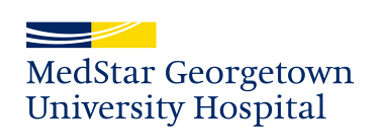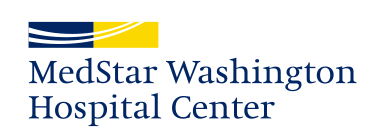The Effect of Coffee on the Absorption of Thyroid Hormone in Patients With Thyroid Carcinoma
| Status: | Recruiting |
|---|---|
| Conditions: | Cancer, Endocrine |
| Therapuetic Areas: | Endocrinology, Oncology |
| Healthy: | No |
| Age Range: | 18 - 60 |
| Updated: | 4/2/2016 |
| Start Date: | September 2012 |
| End Date: | June 2016 |
| Contact: | Dorota Krajewski, MD |
| Email: | dorotak79@yahoo.com |
| Phone: | (301) 475-7750 |
The Effect of Coffee Consumption on the Intestinal Absorption of Levothyroxine Thyroid Hormone Replacement in Patients With Thyroid Carcinoma
The purpose of this study is to evaluate whether taking thyroid hormone medication with
beverages other than water, decreases absorption of the medication by the intestine.
Specifically we are interested in whether coffee, coffee with milk, or black tea affects how
thyroid medication is absorbed by the body. Previous studies have suggested that taking
thyroid hormone with coffee may interfere with the ability to absorb thyroid medicine. Given
that many patients take their thyroid medicine with beverages other than water, and
specifically with coffee or tea, understanding whether and how much coffee or tea may
decrease thyroid hormone absorption is important for clinical practice.
This study will help determine the safest and most effective way for adults to take their
thyroid medication and will guide medical practitioners in how to counsel their patients
when they prescribe thyroid hormone.
beverages other than water, decreases absorption of the medication by the intestine.
Specifically we are interested in whether coffee, coffee with milk, or black tea affects how
thyroid medication is absorbed by the body. Previous studies have suggested that taking
thyroid hormone with coffee may interfere with the ability to absorb thyroid medicine. Given
that many patients take their thyroid medicine with beverages other than water, and
specifically with coffee or tea, understanding whether and how much coffee or tea may
decrease thyroid hormone absorption is important for clinical practice.
This study will help determine the safest and most effective way for adults to take their
thyroid medication and will guide medical practitioners in how to counsel their patients
when they prescribe thyroid hormone.
Previous studies have suggested that taking thyroid replacement therapy with coffee
potentially hinders its absorption. We already know that food especially a fiber-rich diet,
cholestyramine resin, aluminum containing antacids, activated charcoal, and certain herbal
remedies among others interfere with the ability to absorb thyroid medicine. These findings
have prompted providers to advise patients to take their levothyroxine on an empty stomach
in the morning. However, many patients take their thyroid medicine with their morning cup of
coffee prior to eating breakfast. A small study has shown that Italian espresso coffee can
decrease the absorption of levothyroxine, but the effect of American style coffee is not
known. Given that the intestinal absorption of levothyroxine can be hindered by multiple
substances and coffee is the most commonly consumed beverage worldwide, it is important to
investigate what effect coffee may have on thyroid hormone absorption and thyroid function
tests.
Using methods similar to those used in previous studies, this study will measure thyroid
function tests in approximately 10-20 subjects (18-60 years of age) over a 6 hour period of
time after taking their thyroid medication with the specified study beverage for a 6 week
period. Subjects will be randomized to water, black coffee, coffee with milk, and black tea
as four specified study beverages, with water serving as the control beverage. Each subject
will be recruited to participate with each study beverage for a 6 week period of time in a
total of four consecutive 6 week periods. Blood draws will occur at the end of each 6 week
period on test days 1, 2, 3, and 4. The coffee will represent the most common household
coffee brand, Folgers. Thyroid function tests with each beverage will be compared to thyroid
function tests with water to determine if thyroid medication absorption is impaired by
coffee, coffee with milk, or tea.
This study will help determine the safest and most efficacious way for adults to take their
thyroid medication and will guide medical practitioners in how to counsel their patients
when they prescribe thyroid replacement therapy.
potentially hinders its absorption. We already know that food especially a fiber-rich diet,
cholestyramine resin, aluminum containing antacids, activated charcoal, and certain herbal
remedies among others interfere with the ability to absorb thyroid medicine. These findings
have prompted providers to advise patients to take their levothyroxine on an empty stomach
in the morning. However, many patients take their thyroid medicine with their morning cup of
coffee prior to eating breakfast. A small study has shown that Italian espresso coffee can
decrease the absorption of levothyroxine, but the effect of American style coffee is not
known. Given that the intestinal absorption of levothyroxine can be hindered by multiple
substances and coffee is the most commonly consumed beverage worldwide, it is important to
investigate what effect coffee may have on thyroid hormone absorption and thyroid function
tests.
Using methods similar to those used in previous studies, this study will measure thyroid
function tests in approximately 10-20 subjects (18-60 years of age) over a 6 hour period of
time after taking their thyroid medication with the specified study beverage for a 6 week
period. Subjects will be randomized to water, black coffee, coffee with milk, and black tea
as four specified study beverages, with water serving as the control beverage. Each subject
will be recruited to participate with each study beverage for a 6 week period of time in a
total of four consecutive 6 week periods. Blood draws will occur at the end of each 6 week
period on test days 1, 2, 3, and 4. The coffee will represent the most common household
coffee brand, Folgers. Thyroid function tests with each beverage will be compared to thyroid
function tests with water to determine if thyroid medication absorption is impaired by
coffee, coffee with milk, or tea.
This study will help determine the safest and most efficacious way for adults to take their
thyroid medication and will guide medical practitioners in how to counsel their patients
when they prescribe thyroid replacement therapy.
Inclusion Criteria:
- patients with thyroid carcinoma after standard care of treatment on stable dose of
Synthroid with a detectable baseline TSH
Exclusion Criteria:
- Pregnancy
- Undetectable baseline TSH
- Not willing to drink coffee, coffee with milk, or black tea
- Age less than 18 or greater than 60 years old
- Taking generic thyroid hormone (levothyroxine) and not brand-name Synthroid
- Dose of thyroid medication has been recently changed (less than 3 months ago)
- Currently receiving treatment for gastroesophageal reflux disease, gastritis, stomach
or intestinal cancer, inflammatory bowel disease, or H. pylori
- Taking cholestyramine resin, colestipol hydrochloride, sucralfate, iron sulphate,
aluminum containing antacids, activated charcoal, raloxifene, and herbal remedies
- History of previous gastric or small intestine surgery
- Diagnosis of kidney or liver disease, congestive heart failure, anemia, biliary
disease, pancreatitis
We found this trial at
3
sites
Click here to add this to my saved trials
3800 Reservoir Rd NW
Washington, District of Columbia 20007
Washington, District of Columbia 20007
(202) 444-2000

Georgetown University Hospital MedStar Georgetown University Hospital is a not-for-profit, acute-care teaching and research hospital...
Click here to add this to my saved trials
110 Irving St NW
Washington, District of Columbia 20010
Washington, District of Columbia 20010
(202) 877-7000

Washington Hosp Ctr MedStar Washington Hospital Center is a not-for-profit, 926-bed, major teaching and research...
Click here to add this to my saved trials